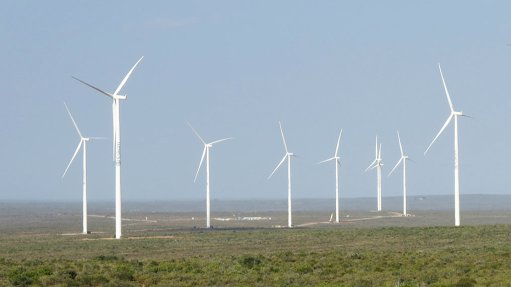Sounds like a melody
What if government policies were like a musician’s song catalogue? You would then expect the songs that made it on to the album to be the musician’s best efforts. They would have to be even more so if they made it to the A side. But then, making it to the album does not guarantee that a song would be a hit – a commercial success.
So, what makes a song a hit? Before answering, consider whether the song is a hit with critics or with fans, or with both. It is possible that a song could be a hit with the critics – when it receives critical acclaim – but be a commercial failure. What’s more, the song might not be a hit with one musician, but a hit with another, or by being recorded in a different style. A case in point is Neil Diamond’s “sombre, acoustic ballad”, which did nothing on the charts until UB40 released their reggae version, which saw Red Red Wine become their biggest hit. It surely lived up to their opening lyrics: “Red Red Wine, you make me feel so fine; You keep me rocking all of the time.”
Why does a song fail? According to www.secretsofsongwriting.com, there are seven reasons why 90% of songs become a flop. These include the form of the song being deemed as confusing, the melody lacking shape, the chords seeming to wander aimlessly, strong and fragile chord progressions being used haphazardly, individual song elements working at cross-purposes with one another, the musician relying on a hook to save a bad song, and the musician awaiting inspiration.
A final thought on songs is whether the song was exclusively written by the musician or co-written with another musician. Well, not quite a final thought: another consideration is whether the performing band is an original band or a tribute band.
As to whether a musician can make a living, that is quite another matter. According to income research conducted by Professor Peter DiCola of Northwestern University, the bottom 99% of working musicians on average earn 10% or less of their income through song-writing royalties. That simply means the only way they can make a living is by touring. In case you are wondering, the top 1% earn an average of nearly 30% of their income from royalties. Thus, all musicians need to tour.
These thoughts raced through my mind as I eagerly awaited the start of my childhood band Alphaville’s concert.
This brings me to the South African government’s economic policies. If the policies were songs, then our government would have quite an extensive catalogue. As to how many of these policies have been hits, or flops, it is not for an individual to say. This might well be the time for you to consider our government’s economic policy catalogue. While you are contemplating the catalogue, bear in mind that, as a band needs to tour, so too does government need to lobby for its economic policies, and to constantly promote them.
Back to the South African government’s economic policies since 1994. There have been a few, with the first being the Reconstruction and Development Programme, the governing party’s 1994 election platform that was expanded on in the 1995 White Paper. Then followed the Growth, Employment and Redistribution (GEAR) of 1996, the ‘lead vocalist’ of which was Nelson Mandela. GEAR was replaced in 2005 by the Accelerated and Shared Growth Initiative for South Africa (ASGISA), whose lead vocalist was Thabo Mbeki. In 2010, the then lead vocalist, Jacob Zuma, replaced ASGISA with the New Growth Path. Then, in early 2013, government introduced the National Development Plan 2030 as the long-term socioeconomic development roadmap. Now, ten years later, there have been no new policies, even though the lead vocalist, Cyril Ramaphosa, has not been changed since 2018.
Article Enquiry
Email Article
Save Article
Feedback
To advertise email advertising@creamermedia.co.za or click here
Announcements
What's On
Subscribe to improve your user experience...
Option 1 (equivalent of R125 a month):
Receive a weekly copy of Creamer Media's Engineering News & Mining Weekly magazine
(print copy for those in South Africa and e-magazine for those outside of South Africa)
Receive daily email newsletters
Access to full search results
Access archive of magazine back copies
Access to Projects in Progress
Access to ONE Research Report of your choice in PDF format
Option 2 (equivalent of R375 a month):
All benefits from Option 1
PLUS
Access to Creamer Media's Research Channel Africa for ALL Research Reports, in PDF format, on various industrial and mining sectors
including Electricity; Water; Energy Transition; Hydrogen; Roads, Rail and Ports; Coal; Gold; Platinum; Battery Metals; etc.
Already a subscriber?
Forgotten your password?
Receive weekly copy of Creamer Media's Engineering News & Mining Weekly magazine (print copy for those in South Africa and e-magazine for those outside of South Africa)
➕
Recieve daily email newsletters
➕
Access to full search results
➕
Access archive of magazine back copies
➕
Access to Projects in Progress
➕
Access to ONE Research Report of your choice in PDF format
RESEARCH CHANNEL AFRICA
R4500 (equivalent of R375 a month)
SUBSCRIBEAll benefits from Option 1
➕
Access to Creamer Media's Research Channel Africa for ALL Research Reports on various industrial and mining sectors, in PDF format, including on:
Electricity
➕
Water
➕
Energy Transition
➕
Hydrogen
➕
Roads, Rail and Ports
➕
Coal
➕
Gold
➕
Platinum
➕
Battery Metals
➕
etc.
Receive all benefits from Option 1 or Option 2 delivered to numerous people at your company
➕
Multiple User names and Passwords for simultaneous log-ins
➕
Intranet integration access to all in your organisation

















